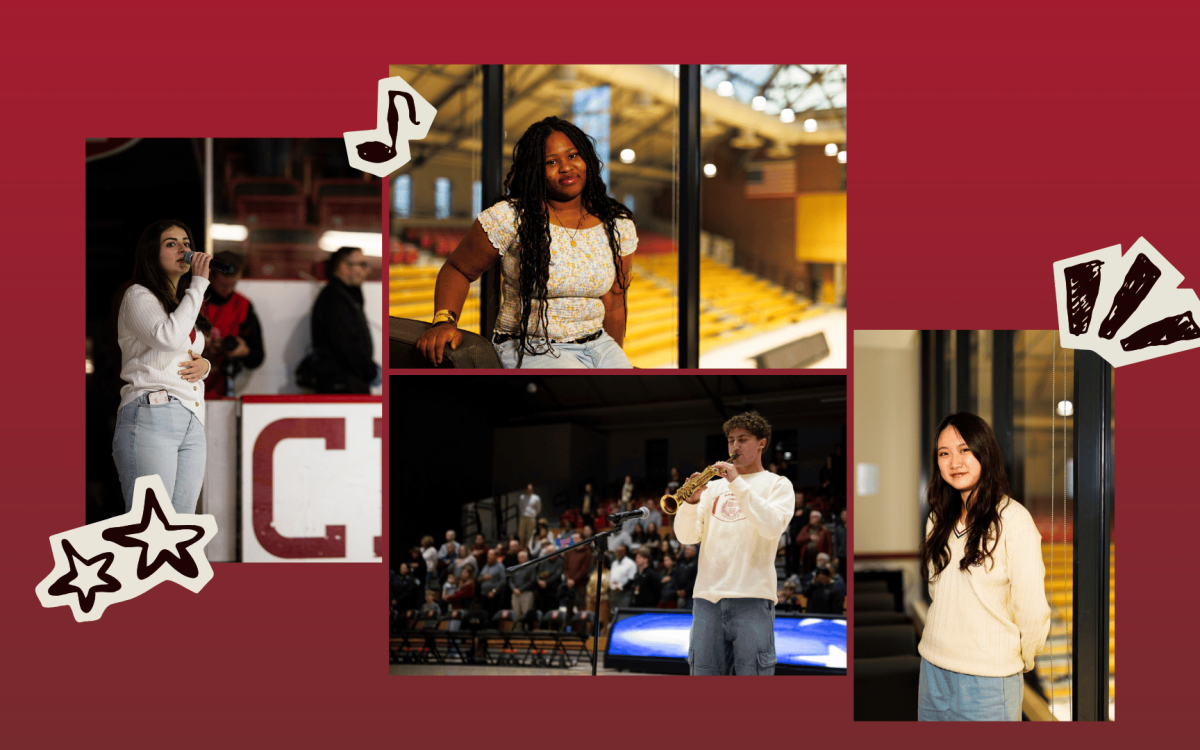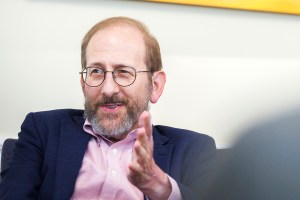Campus & Community
-
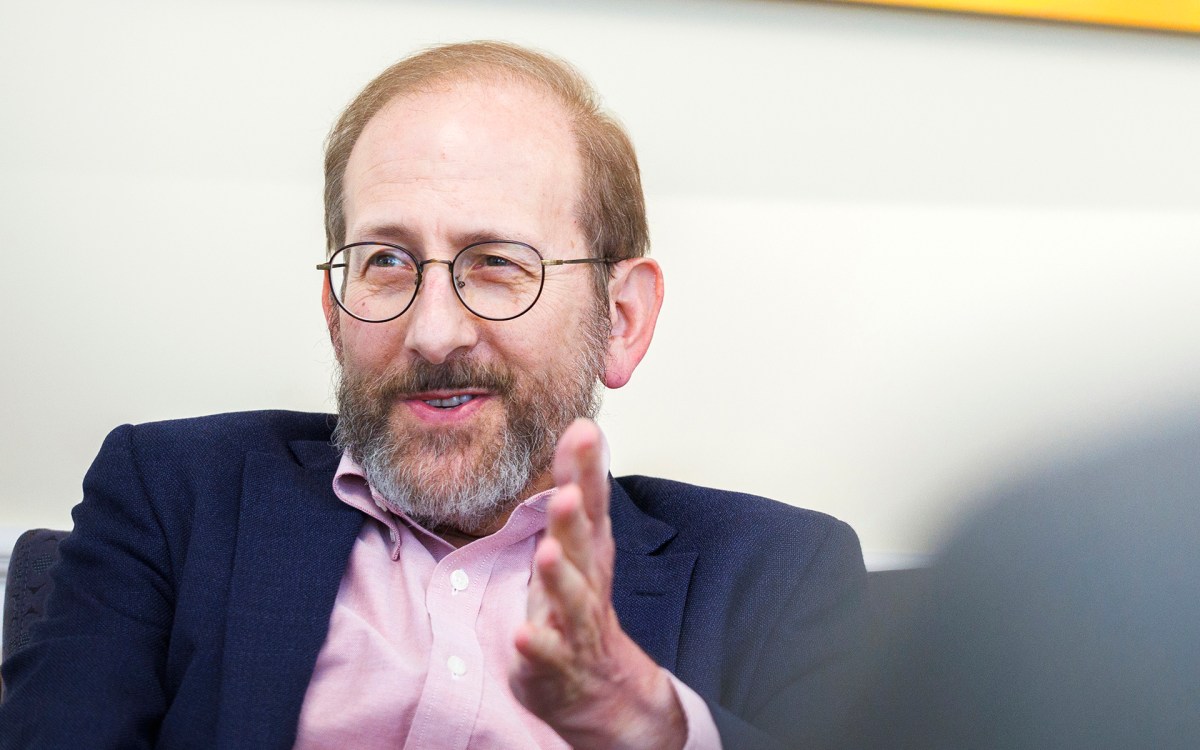
Garber to lead Harvard beyond 2026-27 academic year
‘Our progress has made me prouder than ever to be part of the University — and determined to see us through this uniquely challenging period in our long history.’
-
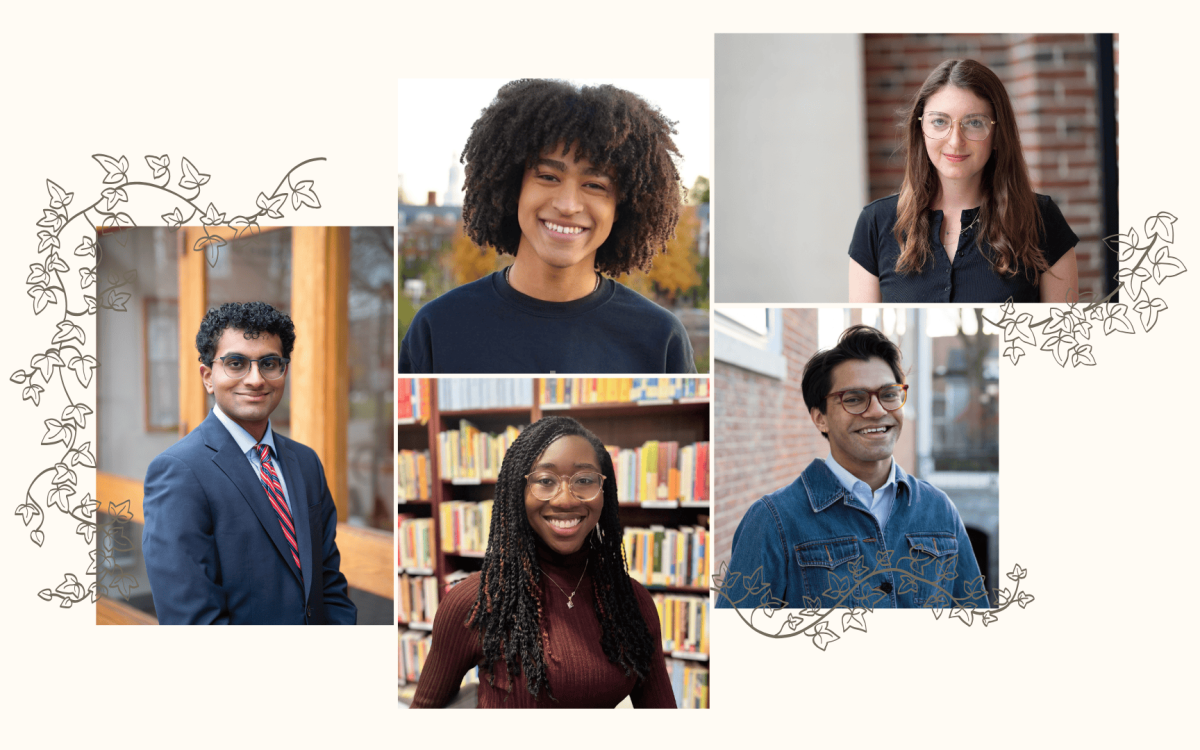
5 from Harvard named Marshall Scholars
Awards for 4 students, 1 alumna — more than any other institution — support graduate studies in the United Kingdom
-
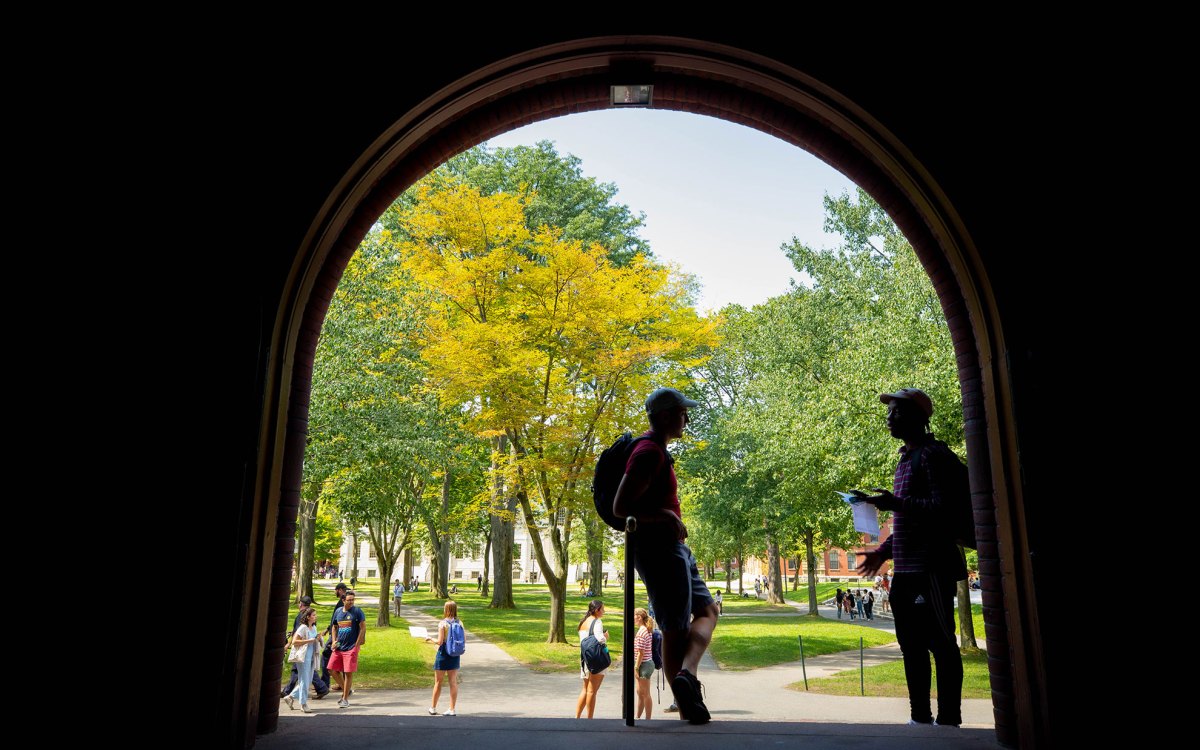
‘Our students are seeking not just to coexist, but to understand’
8 projects win Building Bridges grants to spark constructive dialogue on campus
-
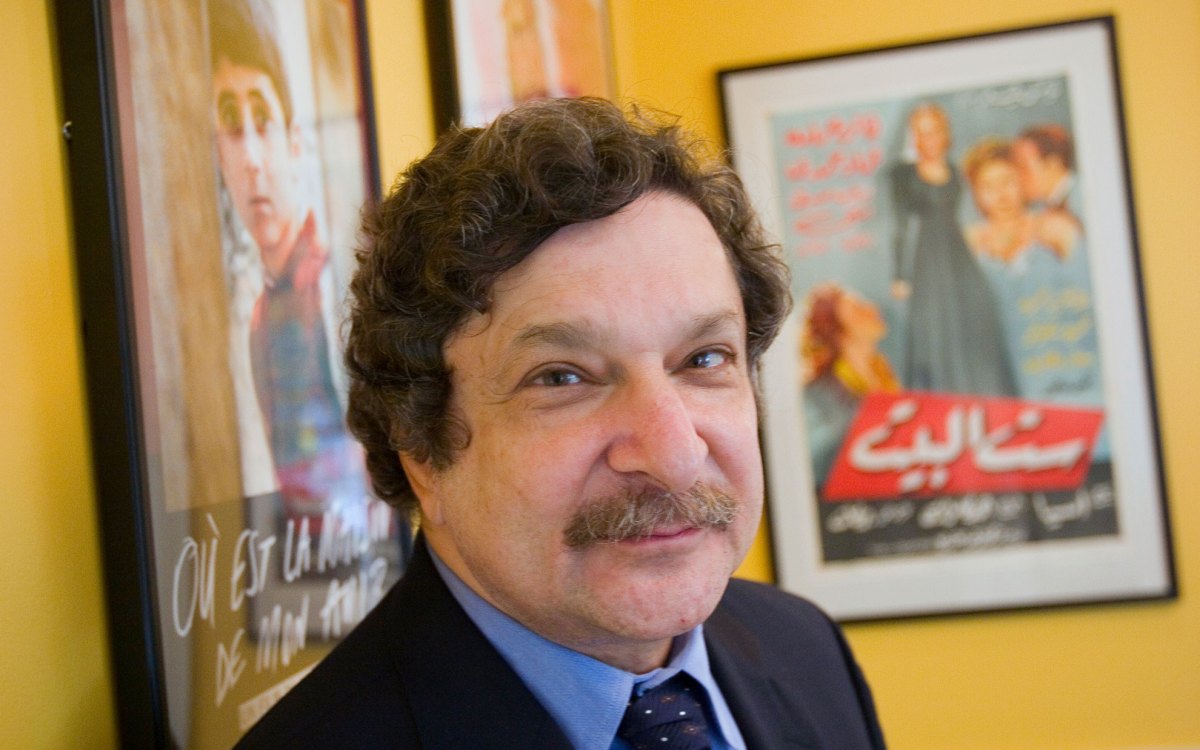
Roy Parviz Mottahedeh, 84
At a meeting of the Faculty of Arts and Sciences on Dec. 2, 2025, the following tribute to the life and service of the late Roy Parviz Mottahedeh was spread upon the permanent records of the Faculty.
-
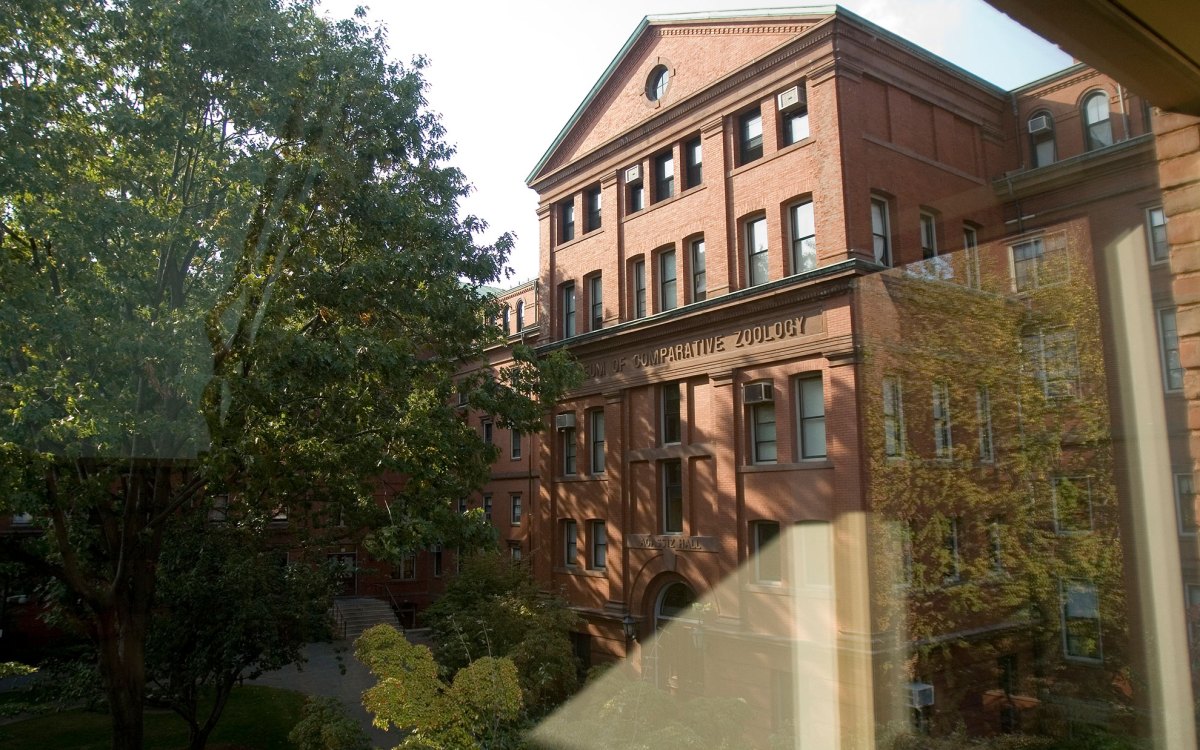
Karel Frederik Liem, 73
At a meeting of the Faculty of Arts and Sciences on Dec. 2, 2025, the following tribute to the life and service of the late Karel Frederik Liem was spread upon the permanent records of the Faculty.
-
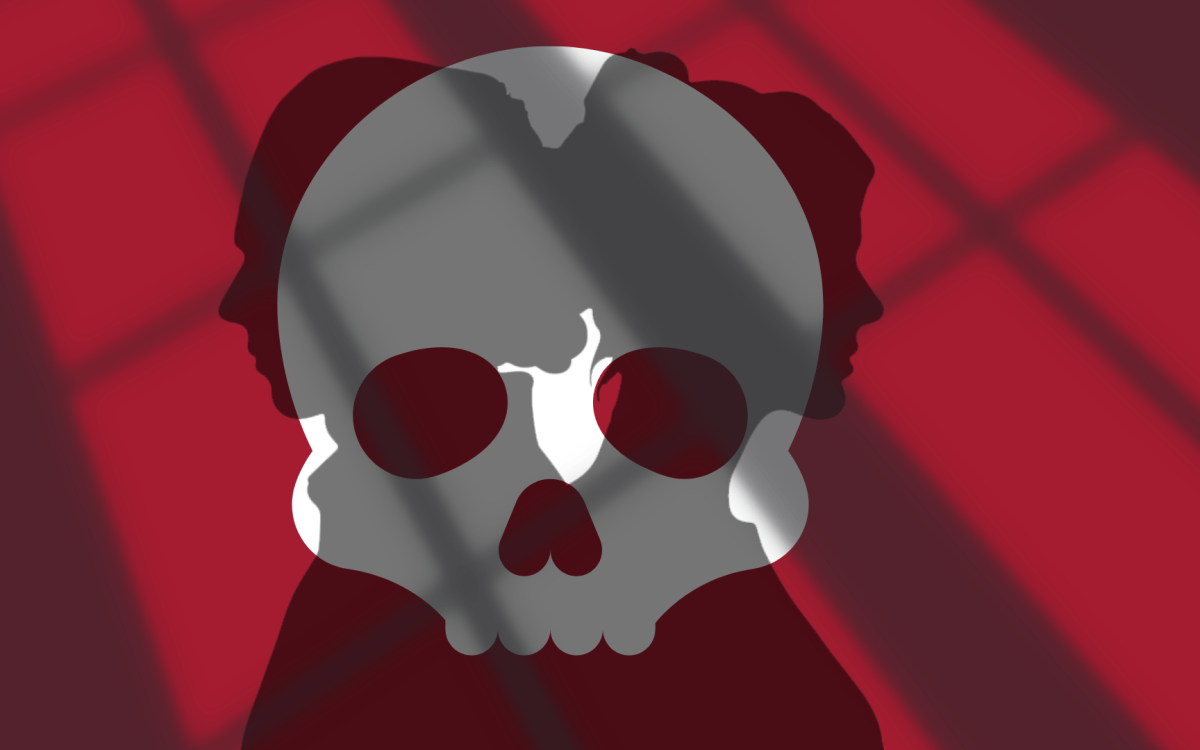
‘Goodnight, sweet prince’
New holiday film reimagines couple’s searing grief over death of young son, how it inspired creation of ‘Hamlet’
-
Arts First fetes 10 years with 225 events
For the 10th straight year, Harvard will explode with the creative outpouring of students, faculty, and alumni next weekend (May 2 – 5), as Arts First fills the entire campus with a riot of color, sound, and motion.
-
Leakey: Save the Serengeti
In his introductory remarks at a lecture Sunday night (April 21) sponsored by the Museum of Natural History (HMNH) at Sanders Theatre, Mellon Professor of the Sciences and Pellegrino University Professor Emeritus E.O. Wilson called Richard Leakey a heroic figure whose life is an epic. He briefly recounted Leakeys bio: The son of the paleoanthropologists Louis and Mary Leakey, as a young man Leakey switched to the family business – namely discovering fossils in East Africa that illuminate African animal history and the early evolutionary history of the human species. He went on to become director of the National Museums of Kenya and of the Kenya Wildlife Service to lead the ban on the ivory trade to raise $150 million for wildlife conservation and – despite an airplane crash that cost him both his legs but scarcely slowed him down – to be appointed head of Kenyas civil service and secretary of the cabinet.
-
Two are recognized by College
Harvard College has selected Laura E. Clancy 02-03 as the winner of the 2002 Harvard College Womens Leadership Award for her exceptional leadership skills.
-
Finally – a home for cinephiles
Not long ago at the Harvard Film Archive (HFA) more than 20 Harvard community movie hounds showed up for the inaugural meeting of Cinephiles Unite, a new special interest group started by Harvard Neighbors (HN) that connects film lovers from across the University with screenings and movie chat. The featured film on this occasion was an updated adaptation of Hamlet, starring Ethan Hawke, Bill Murray, and Julia Stiles. Although shown in the smaller room B-04, rather than the Carpenter Centers main theater, Hamlet was projected onto a wide screen with state-of-the-art digital video and audio, allowing the audience to appreciate the films frequent use of ambient sound and striking visuals.
-
Chris Lydon to deliver Lowell Lecture
Journalist Christopher Lydon will deliver the annual Lowell Lecture, A Culture Trying to Happen, on Tuesday (May 7) at 8 p.m. in Science Center C. The Lowell Lecture is devoted to explorations of major issues of our time and is jointly sponsored by the Lowell Institute of Boston and the Harvard University Extension School.
-
Pluralism Project to host women of all faiths
The third consultation on womens networks in multireligious America will be held at Harvard University this Saturday (April 27) through Monday (April 29). This consultation builds on two previous conversations hosted by the Pluralism Project, under the direction of Diana Eck, professor of comparative religion and Indian Studies.
-
Losing control
Its one of the first things children learn when they start school – no gum chewing! Dubble Bubble, Chiclets, Dentyne, Wrigleys Spearmint – all verboten! And dont even think about leaving the chewed wad stuck to anything.
-
Antiques from Late Antiquity
If you think globalization is a recent phenomenon, check out the exhibition in the newly renovated Divinity School library, Light From the Age of Augustine: Late Antique Ceramics From North Africa (Tunisia).
-
Summers donates 750 books to four Cambridge elementary schools
“Un libro te lleva al cualquier sitio que tu quieras“: a book takes you wherever you want to go, 9-year-old Gabriel Castro told Harvard President Lawrence H. Summers on Friday…
-
Letting nature do the work
The scientist put what looked like black dust into a dish of water. Instead of dust, however, the particles were actually diodes, capable of emitting light under the right conditions. In the dish sat a cylinder, patterned with tiny dots of solder connected by threadlike lines of solder. The goal of the experiment was to get the tiny electronic devices to land on the solder dots.
-
Gender transcends disciplines
From street vendors in India to fighter pilots in the U.S. Air Force, from teen pregnancy to religious asceticism, issues of gender united academics from around Harvard Friday (April 19) in an unusual cross-disciplinary conference.
-
In brief
Teen conference is set for Arab Americans
-
Cornell kills hope for Crimson crown
For a team that was forced to share last seasons Ivy crown with the Harvard softball squad (thanks to some late-season Harvard heroics), Cornells 5-1 win over the Crimson this past Sunday (April 21) was a fitting bit of redemption for the Big Red. As Cornell drilled five hits in the fifth inning against Harvard in the first contest of the doubleheader, the Big Red simultaneously managed to bury Harvard hopes for another (partial or otherwise) Ivy crown. Likewise, the defeat knocked the hot Crimson team out of contention for a NCAA Tournament spot. Still, posting a strong 10-2 record in the Ivies (26-8 overall), the Crimson managed to secure second place behind the eventual champion Princeton Tigers – way ahead of the remainder of the Ivy pack, including third-place Cornell, who are .500 with two league games remaining.
-
Lights! Camera! Doctors!
Does your doctor sing? Does your dentist tap dance?
-
An end to a distinguished career
On April 10, the Harvard Cyclotron Laboratory (HCL) treated its last patient.
-
Committee to Protect Journalists honored
The Committee to Protect Journalists (CPJ) has been selected by Harvards Nieman Fellows to receive the 2002 Louis Lyons Award for Conscience and Integrity in Journalism.
-
All planets will be visible for once-in-a-lifetime sight
For the first time in most peoples lives, they will be able to see every planet in the solar system in one evening. The celestial show has already begun and will go on until early May. If you miss it, youll have to wait at least 70 years for a rerun.
-
Rubin eyes globalization and poverty
The easygoing friendship between Lawrence Summers and Robert Rubin was evident from the start of the event that capped the Third Annual Harvard Colloquium on International Affairs Friday night, (April 12), Rubins keynote address.
-
-
This month in Harvard history
<April 28, 1865 – The Act of this date abolishes all ex officio members of the Harvard Board of Overseers, except the Harvard President and Treasurer (membership had long included state officials). This action, accepted by the Governing Boards in the same year, permanently severs the University from state government. The Act also provides that the 30 Overseers are to be elected in Cambridge on Commencement Day by holders of bachelors, masters, and honorary degrees. By 1916, the vote extends to all Harvard -degree-holders. A 1921 Act gives the Governing Boards the right to adopt new rules for Overseers elections without recourse to the Massachusetts General Court.
-
Police reports
Following are some of the incidents reported to the Harvard University Police Department (HUPD) for the week ending Saturday, April 13. The official log is located at 1033 Massachusetts Ave., sixth floor.
-
President and Provost office hours
President Lawrence H. Summers and Provost Steven Hyman will hold office hours for students in their Massachusetts Hall offices from 4 to 5 p.m. Individuals wishing to meet with President Summers or Provost Hyman will be welcomed on a first-come, first-served basis. A Harvard ID is required.
-
A bigger, better Springfest is ahead
Springfest, the traditional seasonal party and concert put on by the Undergraduate Council (UC), is, this year, going to break a bit from tradition. The event is still the undergraduate be-there-or-be-square to-do of the season, but this time it has a co-sponsor – President Lawrence H. Summers. Summers wants to take advantage of a golden opportunity to get better acquainted with the undergraduate population through his participation in the April affair.
-
Newsmakers
Three selected for book-collecting prize Two seniors and one freshman have been awarded the Visiting Committee Prize for Undergraduate Book Collecting. David Orenstein ’02 received a first prize of $1,000…
-
The Big Picture
Lance Schumacher is a man in motion.
-
Summers, Sen agree (mostly) on globalization
Spreading the wealth of the industrialized world to developing nations will certainly ease poverty, but the problems leading to international terrorism are too complex to be solved by economic programs alone, Harvard President Lawrence H. Summers and Nobel Laureate Amartya Sen said Saturday, April 13.
-
Rugby roughed up
As the Harvard baseball team warmed up to a blaring rendition of Welcome to the Jungle this past weekend (Saturday, April 13) at ODonnell Field, the tune could have served as a harbinger for the Radcliffe rugby team, playing within earshot on their home pitch. The young Radcliffe team (just two seniors deep) entered some pretty hostile terrain against a more experienced University of Massachusetts, Amherst squad. And once the dust settled, and there was plenty, UMass – a national title contender for the past three straight years – had manhandled Radcliffe, 32-3.
-
U.S. leads world in female homicides
A new School of Public Health (SPH) study finds that among high-income nations, the United States has the highest rate of female homicide victimization. The United States accounts for 32 percent of the female population among 25 high-income countries, but 70 percent of all female homicides, and 84 percent of all female firearm homicides. Some 4,000 American females are murdered each year.
-
The other dangers of bioterrorism
The recent anthrax scare and continuing threat of bioterrorism is prompting the revision of sometimes antiquated public health laws, but experts caution that drafters have to carefully consider whether the new laws trample civil liberties in efforts to protect public health.
-
Meditation changes temperatures
In a monastery in northern India, thinly clad Tibetan monks sat quietly in a room where the temperature was a chilly 40 degrees Fahrenheit. Using a yoga technique known as g Tum-mo, they entered a state of deep meditation. Other monks soaked 3-by-6-foot sheets in cold water (49 degrees) and placed them over the meditators shoulders. For untrained people, such frigid wrappings would produce uncontrolled shivering.
